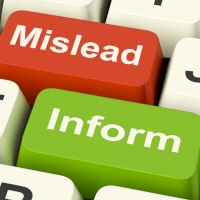News about a deadly virus that appeared in Wuhan, China in December (now called 2019 novel coronavirus, or 2019-nCoV) is everywhere lately. And as the number of cases rises, it’s understandable if you’re wondering how likely it is that you or a loved one will become ill. And quite likely, you’re also wondering how to prevent this.
So, where should you turn for the latest information on a rapidly changing situation? It’s hard to beat the convenience of the internet, and we know there’s a lot of useful and reliable information online. But there’s also a lot of misinformation. The trick is to figure out which is which.
Why you need to know about this new virus
The concern regarding this new virus is well-deserved. As of January 31, there have been
- Nearly 10,000 confirmed cases and 213 confirmed deaths attributed to 2019-nCoV, according to the World Health Organization (WHO). 99% of the cases and all of the deaths have been in China.
- 26 countries reporting cases, according to the Centers for Disease Control and Prevention (CDC). Nearly all of those with confirmed cases either live in China or had traveled from China to other countries.
- six cases in the US in four states (Arizona, California, Illinois, and Washington). Another 160 people in 36 states are being evaluated for suspected infection.
All of these numbers are likely to rise in the coming days and weeks, because each infected person could potentially spread the infection to many others. And it’s possible that a person can spread the infection before he or she knows they’re sick; this has not been proven for this particular virus, but if true, quickly containing its spread may be impossible. That’s why it’s particularly important to get reliable information about what is happening and what you can do to protect yourself.
Beware: Misinformation is rampant
Just as the number of people and countries affected by this new virus have spread, so have conspiracy theories and unfounded claims about it. Already social media sites, including Facebook, Twitter, YouTube, and TikTok, have seen a number of false and misleading posts about 2019-nCoV, such as:
- “Oregano Oil Proves Effective Against Coronavirus,” an unfounded claim
- a hoax stating that the US government had created and patented a vaccine for coronavirus years ago, shared with nearly 5,000 Facebook users
- a false claim that “coronavirus is a human-made virus in the laboratory”
- sales of unproven “nonmedical immune boosters” to help people ward off 2019-nCoV
- unfounded recommendations to prevent infection by taking vitamin C and avoiding spicy foods
- a video with useless advice about preventing 2019-nCoV by modifying your diet (for example, by avoiding cold drinks, milkshakes, or ice cream). This video, which demonstrates the removal of a parasitic worm from a person’s lip, is many years old and has nothing to do with 2019-nCoV.






